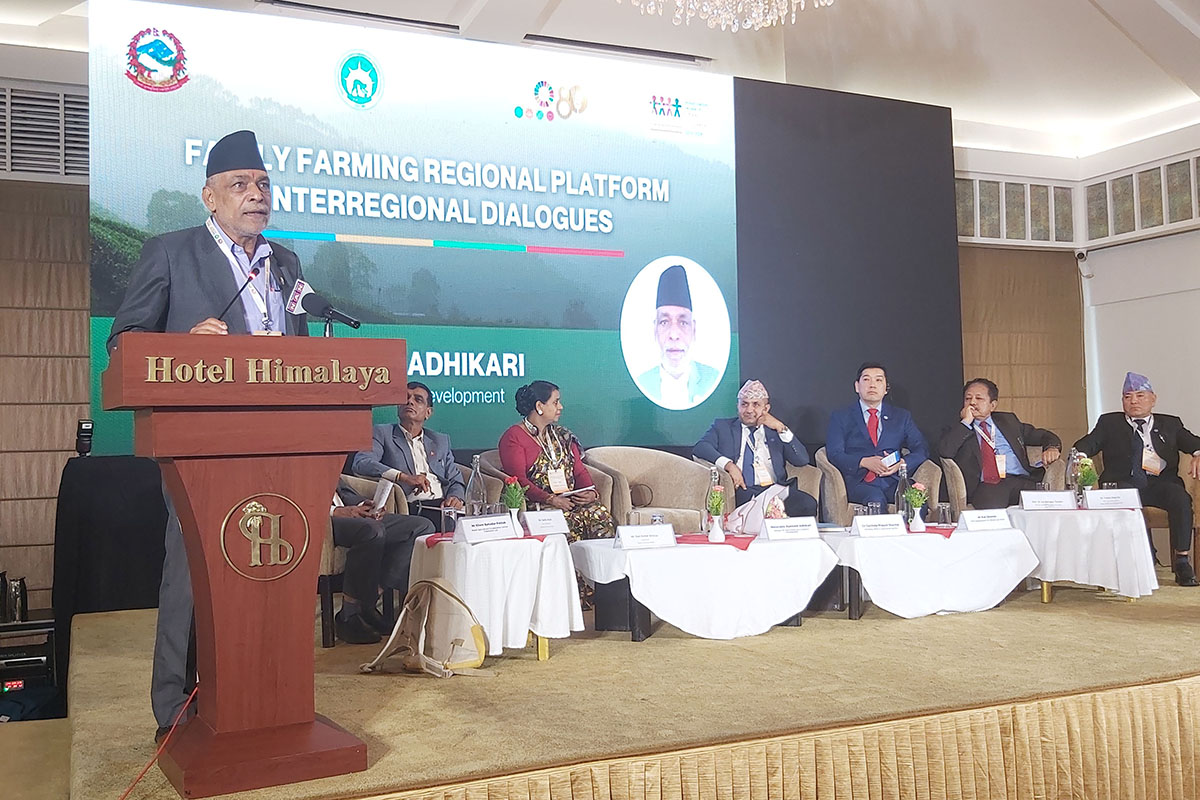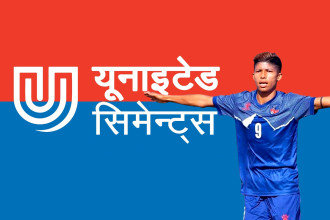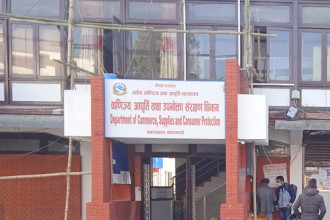
PATAN: Minister for Agriculture and Livestock Development Ramnath Adhikari has pledged to promote an inclusive and climate-resilient agricultural system.
Addressing the Interregional Dialogues on Family Farming, jointly organised by the Ministry of Agriculture and Livestock Development (MoALD), FAO Nepal and other partner organisations, the Minister said climate-friendly agriculture, sustainable livestock farming and the introduction of advanced technologies are being prioritised within the national agricultural framework.
He highlighted model agricultural co-operatives, integrated farming systems and farmer-driven innovations as rural practices that have boosted production and increased farmers’ incomes.
The event, held under the theme ‘Family Farming and Inclusive Rural Transformation: Innovations for Sustainable Development in the Face of Climate Change’, also spotlighted recent expansion of irrigation networks, greater availability of cold-storage facilities and strategic investment in value chains to secure profitable market access for producers.
Pointing to Nepal’s acute vulnerability to climate change, Minister Adhikari warned that unpredictable weather, floods, droughts and landslides have threatened livelihoods and national food security. ‘Recent natural disasters have caused significant losses in the agricultural sector, underscoring the urgency of better adaptive measures,’ he added.
He outlined additional priorities, including planned crop diversification, soil-fertility improvement, sustainable water management and the promotion of drought- and flood-tolerant crops.
‘We call for increased regional cooperation in the exchange of climate data, the development of early-warning systems and the strengthening of cross-border disaster preparedness,’ the Minister said. He noted that Nepal’s expertise in hill and mountain agriculture offers the global community insights into climate adaptation, optimal utilisation of natural resources and community-based agricultural approaches.
Minister Adhikari also urged the government to review taxes on agricultural produce to ensure the sustainable development of family farming systems and fair access and benefits for small-scale farmers in international markets. ‘Family farming, where small- to medium-scale producers are involved, is the main practice of agriculture in both developed and developing countries,’ he said.
He described family farming as fundamental to preserving Nepal’s culture, tradition and food security, as well as underpinning its economic activities, and asserted that it remains central to inclusive rural transformation.
Paying tribute to the dedication of farmers, women and young people in rural areas, he called them the backbone of the food system and guardians of agricultural heritage. He urged participants to take concrete steps to make family farming a respected, profit-oriented and sustainable occupation rather than merely a means of survival.
Kusum Devi Thapa, Chairperson of the HoR's Committee on Agriculture, Cooperative and Natural Resources, said Parliament has played a key role in creating inclusive, farmer-friendly legislation. She emphasised the need for political will and technical expertise to sustain agricultural development.
Govinda Prasad Sharma, Secretary at the MoALD, added that discussions among policymakers, farmers and stakeholders will centre on strengthening the family farming model and mitigating the impact of climate change on the sector.
By RSS






